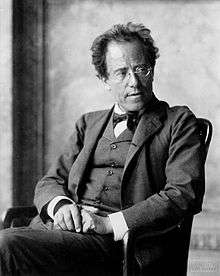Degenerate music





Degenerate music (German: Entartete Musik, German pronunciation: [ɛntaʁtɛtə muziːk]) was a label applied in the 1930s by the Nazi government in Germany to certain forms of music that it considered to be harmful or decadent. The Nazi government's concern for degenerate music was a part of its larger and more well-known campaign against degenerate art ('Entartete Kunst'). In both cases, the government attempted to isolate, discredit, discourage, or ban the works. Their ideas drew on decades of anti-Semitic writing on music and on a debate on the relationship between music and mental illness.
Racist emphasis
Jewish composers such as Felix Mendelssohn and Gustav Mahler were disparaged and condemned by the Nazis. In Leipzig, a bronze statue of Mendelssohn was removed. The regime commissioned music to replace his incidental music to A Midsummer Night's Dream (Petit and Giner 2015, ).
Discrimination
From the Nazi seizure of power onward, these composers found it increasingly difficult, and often impossible, to get work or have their music performed. Many went into exile (e.g., Arnold Schoenberg, Kurt Weill, Paul Hindemith, Berthold Goldschmidt); or retreated into 'internal exile' (e.g., Karl Amadeus Hartmann, Boris Blacher); or ended up in the concentration camps (e.g., Viktor Ullmann, or Erwin Schulhoff).
Like degenerate art, examples of degenerate music were displayed in public exhibits in Germany beginning in 1938. One of the first of these was organized in Düsseldorf by Hans Severus Ziegler, at the time superintendent of the Weimar National Theatre, who explained in an opening speech that the decay of music was "due to the influence of Judaism and capitalism". Ziegler's exhibit was organized into seven sections, devoted to (1) the influence of Judaism, (2) Schoenberg, (3) Kurt Weill and Ernst Krenek, (4) "Minor Bolsheviks" (Schreker, Alban Berg, Ernst Toch, etc.), (5) Leo Kestenberg, director of musical education before 1933, (6) Hindemith's operas and oratorios, and (7) Igor Stravinsky (Anon. 1938, 629).
From the mid-1990s the Decca Record Company released a series of recordings under the title 'Entartete Musik: Music Suppressed by the Third Reich', covering lesser-known works by several of the above-named composers.
See also
- Reichsmusikkammer
- Negermusik
- Reich Music Examination Office
- Cultural Bolshevism
- Low culture
- Swing Kids
References
- Anon. 1938. "Musical Notes from Abroad". Musical Times 79, no. 1146 (August): 629–30.
- Petit, Elise, and Bruno Giner. 2015. Entartete Musik. Musiques interdites sous le IIIe Reich. Paris: Bleu Nuit éditeurs.
External links
- "Degenerate" Music in Nazi Germany
- "Degenerate" Music at Guide to the Holocaust
- Database of "Degenerate" Music